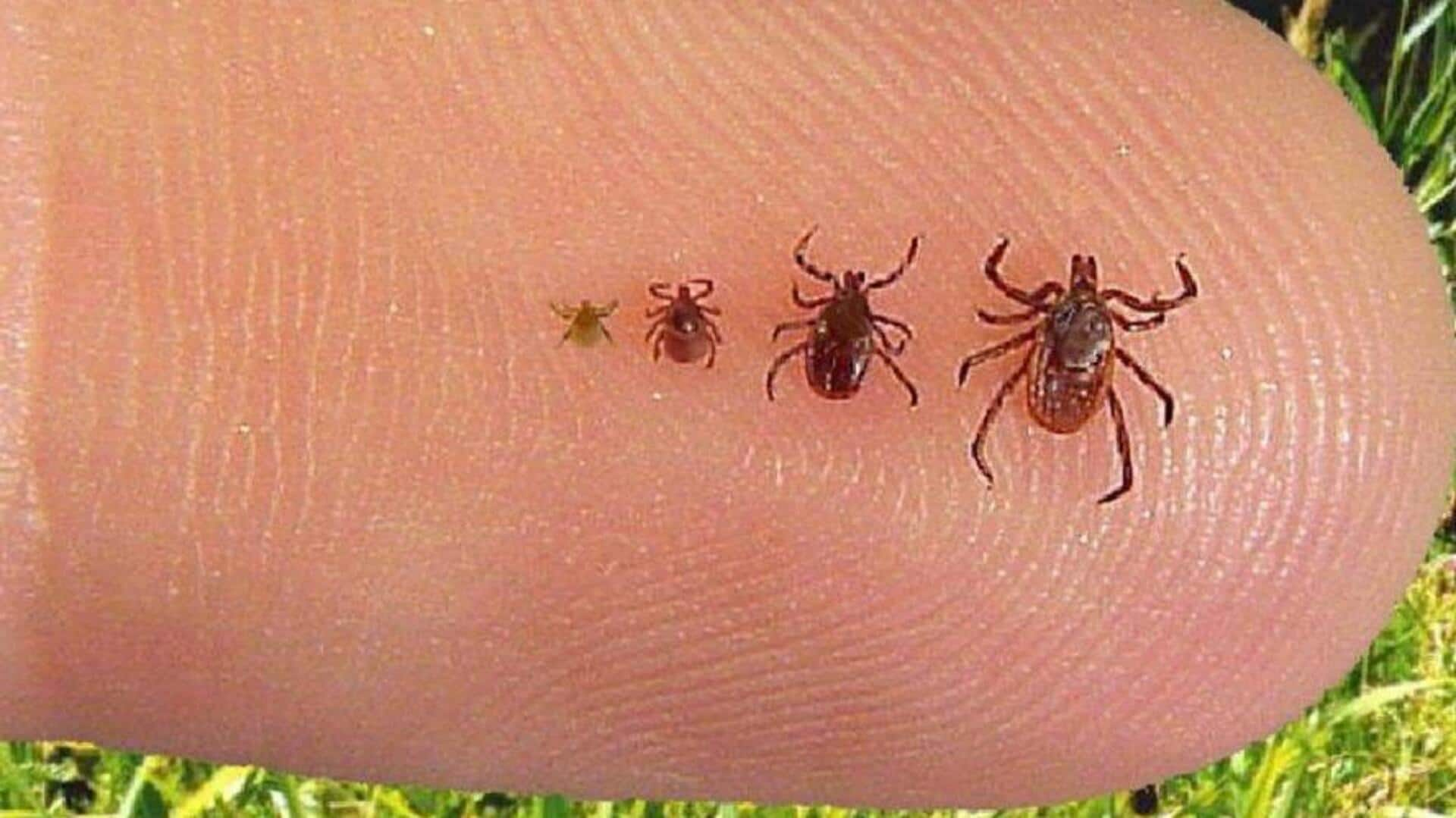
US sees rise in tick-borne disease Babesiosis; know its symptoms
What's the story
The United States is experiencing an increase in a tick-borne disease, Babesiosis, especially in the northeastern states, according to the Centers for Disease Control and Prevention (CDC). Babesiosis, which is spread by ticks that become attached to your skin, is one of the most most common illnesses after Lyme disease. "Babesiosis is less common than Lyme disease but tracks in the same areas," said Paul Auwaerter, a professor of medicine and clinical director at Johns Hopkins University School of Medicine.
Disease overview
Babesiosis: A less common but serious tick-borne disease
Auwaerter emphasized the seriousness of Babesiosis, especially for those with compromised immune systems. Unlike other tick-borne diseases such as Lyme disease, anaplasmosis and ehrlichiosis which are bacterial, Babesiosis is a rare parasitic illness caused by the bite of a tick infected with Babesia microti. Babesiosis is similar to malaria and primarily spreads through the bite of an infected black-legged tick, Ixodes scapularis.
Disease progression
Babesiosis transmission and symptoms
It does not transmit from person to person but can be contracted during a transfusion of contaminated blood or passed on from an infected mother to her baby. Once in the bloodstream, Babesia microti parasites can infect red blood cells, potentially causing anemia and other symptoms such as fever, chills, nausea, body aches and fatigue. The severity of Babesiosis infections can vary, with some individuals showing no symptoms at all.
Treatment protocols
Babesiosis infection severity and treatment options
"Most adults clear the Babesiosis infection on their own without any treatment within a year," stated Evan Bloch, an associate professor at Johns Hopkins University School of Medicine. However, he warned that this disease could be life-threatening for those without a spleen or with a weak immune system. For mild to moderate cases, treatment typically involves an oral course of azithromycin and atovaquone, while severe cases may require hospitalization and potentially blood transfusions.
Symptoms
Signs and symptoms of babesiosis
Many people infected with Babesia microti do not experience any symptoms. Some may develop nonspecific flu-like symptoms like fever, chills, sweats, headache, body aches, loss of appetite, nausea, or fatigue. It can also cause hemolytic anemia (a condition where red blood cells are destroyed), which can linger for several days to months. In severe cases, blood clots, organ failure, unstable blood pressure, and death are all possible outcomes.